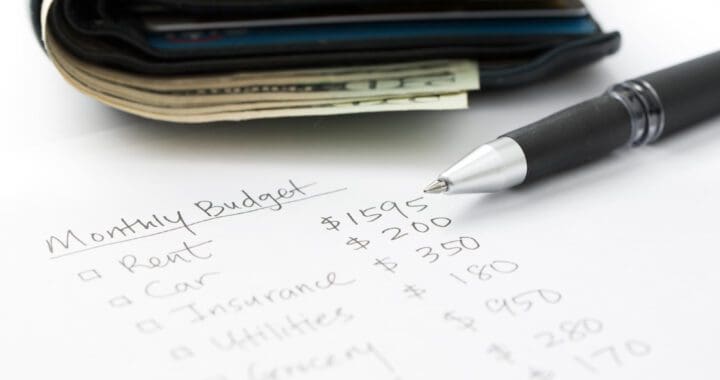Are you tired of asking yourself, “Where does my money go?” If you’re reading this, chances are you’re intrigued by the idea of Financial Independence Retire Early (FIRE). Achieving FIRE requires a clear plan, and one of the most powerful tools in your arsenal is tracking expenses. This comprehensive guide will explore the transformative power of tracking expenses and how it can pave your way to financial freedom.
Table of Contents
- Understanding FIRE: The Ultimate Financial Goal
- The Importance of Tracking Expenses
- Getting Started with Budget Tracking
- Small Changes, Big Impact
- Categories Matter: The Art of Expense Categorization
- Tools of the Trade: Expense Tracking Apps
- Case Study: Journey to FIRE Through Expense Tracking
- The Psychology of Financial Awareness
- Turning Expenses into Investments
- Conclusion: Your Roadmap to Financial Freedom
Let’s embark on this financial journey together, shall we?
Understanding FIRE: The Ultimate Financial Goal
Before we dive into the nitty-gritty of expense tracking, it’s essential to grasp the concept of (FIRE). Financial Independence Retire Early is a lifestyle movement that aims to achieve financial freedom at a relatively young age. The primary goal is to accumulate enough wealth to cover your living expenses, allowing you to retire and enjoy life on your terms.

The Importance of Tracking Expenses
Tracking expenses is the cornerstone of the FIRE movement. It’s your financial flashlight in the darkness, illuminating your spending habits and providing invaluable insights. Here’s why it’s so crucial:
- Self-Awareness: Expense tracking forces you to confront your financial habits head-on. It’s like looking in the mirror; you might not always like what you see, but it’s the first step towards improvement.
- Identifying Opportunities: By meticulously recording your spending, you can pinpoint areas where you can cut back or optimize. This is where your journey to financial freedom truly begins.
Getting Started with Budget Tracking
Now that we understand the significance of tracking expenses, let’s get practical. How do you start? It’s simpler than you might think:
- Create Expense Categories: Begin by categorizing your expenses. This point could include housing, transportation, groceries, entertainment, and more. Categorization helps you understand where your money is going.
- Choose Your Tools: Consider using budget-tracking apps or software to make your life easier. Popular choices like Mint, YNAB (You Need A Budget), and Empower (ex.Personal Capital) can automate much of the process.
- Set Achievable Goals: Define your financial goals. Whether saving for an emergency fund, paying off debt, or investing for retirement, having clear objectives keeps you well motivated.

Small Changes, Big Impact
The beauty of expense tracking lies in its ability to reveal opportunities for improvement. Even small changes in your spending habits can substantially impact your financial future. Let’s look at a few examples:
- Cutting Daily Coffee: Skipping that $5 daily latte might seem inconsequential, but it may add up to $1,825 over a year. Invested wisely, this could significantly boost your FIRE fund.
- Cooking at Home: Dining out frequently can drain your wallet. Moreover, cooking at home saves money and promotes healthier eating.
- Carpooling or Public Transport: Consider sharing rides or using public transportation as much as possible. You’ll save on fuel, maintenance, and parking costs.
Categories Matter: The Art of Expense Categorization
Pro Tip: Regarding expense tracking, categorization is your best friend. It allows you to see precisely where your money is going and where adjustments can be made. Here are some common expense categories to consider:
- Necessities: This includes essentials like housing, utilities, groceries, and transportation. It’s where most of your money goes.
- Debt Repayment: This category is crucial if you have outstanding loans or credit card debt. Tracking your progress here can be incredibly motivating.
- Entertainment: This covers dining out, streaming services, hobbies, and leisure activities. It’s an area where small changes can yield significant results.
- Savings and Investments: This category should be addressed and not neglected. It includes contributions to your retirement accounts, emergency funds, and other investments.
Tools of the Trade: Expense Tracking Apps
In the digital age, there’s an app for everything, including tracking expenses. Here are some top-notch options to consider:
- Mint: A user-friendly app that connects to your bank accounts, credit cards, and investments. It automatically categorizes expenses and provides budgeting insights.
- YNAB (You Need A Budget): YNAB follows a zero-based budgeting philosophy, helping you assign every dollar a job. It’s ideal for those looking to take complete control of their finances.
- Empower: Empower offers robust tools to track your net worth and portfolio performance if you’re focused on investments and retirement planning.
Case Study: Journey to FIRE Through Expense Tracking
Let’s take a real-life example to understand how expense tracking can lead to FIRE success.
Meet Monica, a 30-year-old professional with dreams of retiring by 45. She started tracking her expenses diligently and identified areas where she could cut back. Here’s her progress after five years:
- Increased Savings: By cutting unnecessary expenses, Monica was able to save 30% of her income, significantly improving her nest egg.
- Debt-Free: She paid off her student loans and credit card debt, freeing up even more money for investments.
- Investment Growth: Monica’s well-managed portfolio grew substantially thanks to consistent and regular contributions.
- Financial Peace: With a clear financial plan and growing savings, Monica is well on her way to efficiently achieving her FIRE goals.

The Psychology of Financial Awareness
Expense tracking is not just about numbers; it’s about changing behavior. Furthermore, you become more mindful of your spending choices when you track your expenses. This newfound awareness can lead to healthier financial habits:
- Reduced Impulse Spending: Knowing that every expense is recorded can make you think twice before making impulsive purchases.
- Goal-Oriented Mindset: Tracking expenses keeps your financial goals front and center, motivating you to stay on track.
- Improved Decision-Making: Armed with data, you can make informed decisions about where to position your money.
Turning Expenses into Investments
Here’s the secret sauce of FIRE: Turning your expenses into investments. As you track your expenses and identify areas to cut back, redirect those funds into income-generating assets like:
- Stocks and Bonds: Invest in a diversified portfolio to harness the power of compounding.
- Real Estate: Consider rental properties or real estate investment trusts (REITs) for steady cash flow.
- Side Hustles: Use the freed-up funds to start a side business or invest in a passion project. Over time, this could become a significant income source.
- Emergency Fund: Build a robust emergency fund to cover unexpected expenses so you’re not forced to dip into your investments.
Your Roadmap to Financial Freedom
In conclusion, tracking expenses is not just a mundane task; it’s your roadmap to financial freedom. It empowers you to take control of your finances, make informed decisions, and accelerate your journey to FIRE.
But remember, achieving FIRE is a long journey. It requires discipline, patience, and a commitment to your financial goals. As you embark on this trip, keep these key takeaways in mind:
- Start Today: There’s no better time than now to begin tracking your expenses. The sooner you start, the faster you’ll progress towards financial independence.
- Small Changes Matter: Consider the power of small adjustments in your spending habits. Over time, they can lead to substantial savings.
- Stay Consistent: Tracking expenses is most effective when done consistently. Make it a habit to review your finances regularly.
- Adjust and Evolve: Your financial situation may change over time. Be flexible and adjust your budget and investment strategy accordingly.
- Seek Professional Guidance: Consider consulting with a financial advisor or planner to fine-tune your FIRE strategy and ensure you’re on the right track.
Remember, the journey to FIRE is as much about the process as the destination. It’s mostly about gaining control over your financial life, reducing stress, and enjoying the freedom to pursue your passions and dreams.
So, are you ready to take the first step on your road to financial freedom? Start tracking your expenses today, and watch as your financial future becomes brighter with each entry in your budget tracker.
Here’s to a life where you call the shots, retire on your terms, and achieve the financial independence you’ve always dreamed of. Your journey begins now.
FAQ: Your Burning Questions About Expense Tracking and FIRE
We’ve covered much in this guide, but you might still have some lingering questions. Here are some of the most common inquiries about expense tracking and the path to Financial Independence, Retire Early (FIRE):
1. How do I choose the right budget-tracking app?
Selecting the right budget-tracking app depends on your specific needs and preferences. Consider factors like user-friendliness, features, and whether it connects to your financial institutions. Popular choices include Mint, YNAB (You Need A Budget), and Empower. Try a few to see which one aligns best with your financial goals.
2. Is expense tracking only for people pursuing FIRE?
Expense tracking is a valuable practice for everyone, not just those on the FIRE journey. It helps individuals better understand their financial habits, make informed decisions, and save for their goals, whether it’s early retirement, a dream vacation, or debt repayment.
3. How often should I review my expenses?
Consistency is key. Aim to review your expenses at least once a week or once a month, depending on your preferences. Regular reviews help you stay on top of your budget and make necessary real-time adjustments.
4. What if I have irregular income?
Irregular income can make budgeting and expense tracking more challenging, but it’s still possible. Consider creating a variable budget that accounts for fluctuating income in such cases. Focus on building a robust emergency fund to provide stability during lean months.
5. Can I achieve FIRE with a low income?
Yes, achieving FIRE is possible regardless of your income level. It may take longer, and you might need to be more frugal and strategic, but the principles of expense tracking and wise financial management can still lead you to financial independence.
6. Are there any risks involved in turning expenses into investments?
Investing always carries some risk, but it’s also essential to building wealth for FIRE. To minimize risk, diversify your investments, consider long-term strategies, and, if uncertain, seek advice from a financial professional who can tailor an investment plan to your goals and risk tolerance.
These FAQs should address some of the most common queries about tracking expenses and pursuing FIRE. Remember that financial journeys are highly personal, and while these answers provide valuable insights, your path to financial freedom is uniquely yours. Stay committed, stay informed, and watch your financial goals become a reality.





